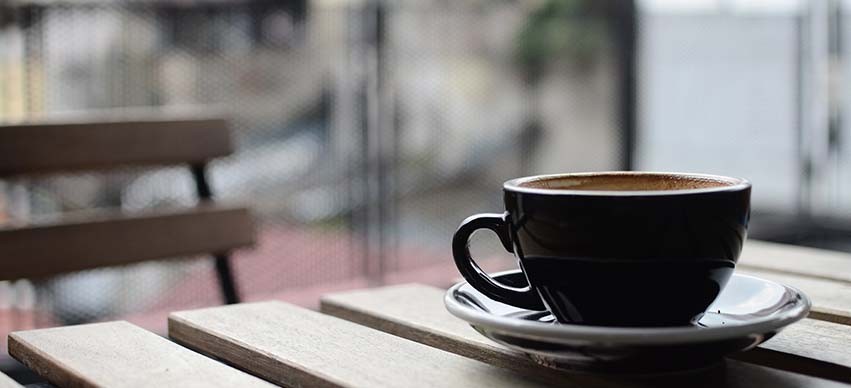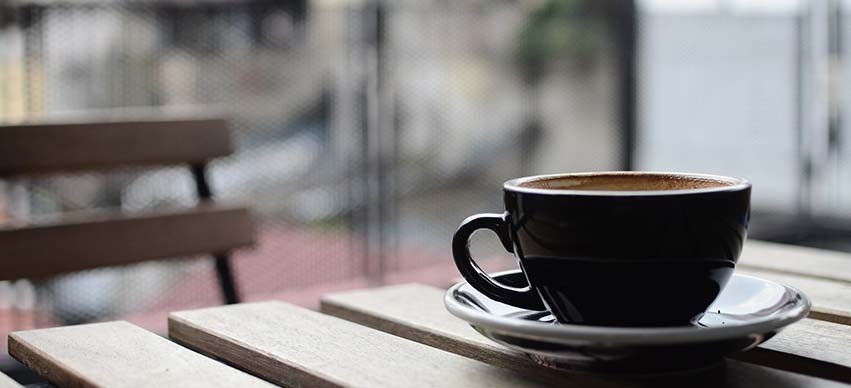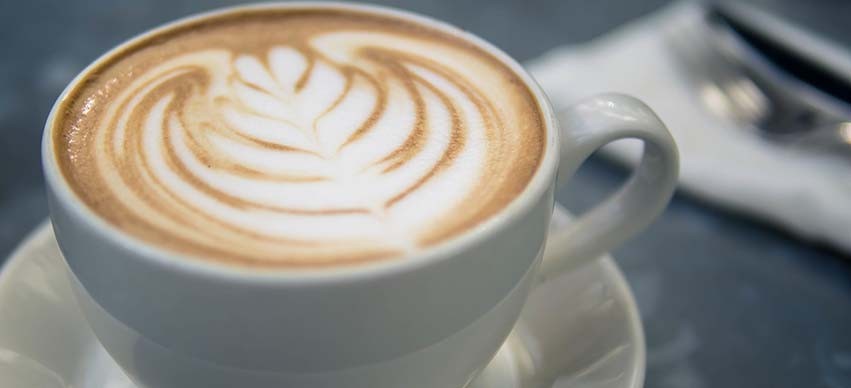What is Tempeh? Nutrition, Health Benefits, How to eat
4 Min Read


Coffee is not bad if done within limits. In fact, there are many who will be absolutely shocked on putting this crisis buster under such gruesome lights. So you may well imagine what it means to them putting on those really heavy stigmas; however, lighten up before we make our Cup of Joe (it’s ‘JOE’; not joy as many think it to be) appear for the court martial; discussing the secrets behind this human name will lighten things up to several degrees. At least, that’s what coffee did to the U.S. Navy crews when alcohol was banned aboard in 1914 and the idea of the U.S. Navy secretary - Joe Daniels – clung on big time.
His name, thus, has ever since been immortalized and perhaps envied big time by the Turkish soul who left behind the beans while retreating from Austria. He now has a pal, too; the Viennese guy who, out of compulsion, added plenteous milk and sugar to the brew and made the world's first cappuccino, named to show the friar from the Capuchin order of monks the due respects for his bravery against the Turks.
But all that is history and we are dealing with the present.
A few of man’s creation have witnessed overzealous usage over the past few decades; some have even raised questions on whether their usage crossing the borders of morality. Guns are one; next are steroids and lastly, coffee. The sad part is; a careful, rational usage would have put all three as blessings rather than something more than half the world dreads now. However, let’s get our priorities right with coffee as of now; steroids and guns need a clearer, sharper and stronger mind to discuss.

The problem started when the simple, black beauty started donning almost everything under the sun and condensed skim milk, chocolate and whipped cream is what she started with; ask the teens today for a complete picture. Their accounts shall include mint, vanilla, corn syrup and a myriad other things, which are mostly suga-refined and swee-tinned stuff prepared artificially. All these hide the natural bitter taste of coffee, allowing people guzzle more of it and experience bouts of jitteriness and anxiety – which are this time countered with strong, black ones or espressos, making heartburns and insomnia the most imminent dangers of what could otherwise had been a very pleasant coffee-drinking experience. That makes the spree die down for some time and while it provides a temporary relief, it paves the way towards some insatiable cravings later on. Let’s see.
Currently, there are nearly two million Indians with varied degrees of caffeine addiction and not all of them are full-fledged adults. But what’s even more surprising, a considerable number of these addicts exhibit an affinity towards the add-ons and not caffeine per-se, a vital cause behind childhood obesity and diabetes being on a rise. Coffee joints serve even 800+calories as they are peanuts and that’s what makes the 18- to 24-year-olds get hooked on to coffee all the more. This is plain abusing God’s own formulation to stay slim, trim and healthy.

1. Heart problems: Although controversial, cohort studies prefer putting the stigma heavily on coffee drinking habits. It is assumed that increased risks of cardiovascular diseases come from the diterpenes. Cafestol and kahweol are two of them found in unfiltered coffee. They exhibit LDL-raising properties. Excess coffee consumption also brings elevations in plasma homocysteine - an amino acid essential for cellular metabolism and protein building. This is damaging to the blood vessel linings and forms clots. This is the most direct reason found till date supporting the coffee ills and heart problems entente. Ironically, the poignant difference - or incongruity, if you prefer – of moderate coffee drinking with heavy, chronic habits is coffee, in moderation helps the heart grow stronger. Thank its antioxidants for that.
2. Vasoconstriction: In plain words, that’s a decrease in the diameter of blood vessels, narrowing in still simpler terms. This also taxes their functionality and may bring heart rhythm disturbances. This is called cardiac arrhythmias.
3. Blood pressure fluctuation: Good news is that only chronic heavy users are vulnerable to this risk. Even occasional bingeing of coffee brings unfavorable effects on an absolutely normal blood pressure level. This may become worse for them prone to sudden rises. It may induce in them a slightly high but sustained state of hypertension for lengthy periods. It often goes unnoticed.
4. Osteoporosis: Coffee has chelating agents - the Tannic acids - that bond with essential trace minerals. One is calcium. It goes out with urine; another one is iron. More than 600 ml of coffee consumption a day increases risks for osteoporosis and women are more susceptible.
5. Heartburn: Coffee is both acidic and acidifying; thus, fiddles with the body-pH. Heartburn is just an immediate effect.
6. Sleep disturbance: Caffeine is charging, so extra amounts keep hammering till metabolized. This, in turn, disrupts body-pH further, causing tummy-troubles, which is essentially throwing the digestive tract out of its ecological balance. Its worst form is IBS.
7. Dehydration: Coffee is diuretic; thus water is must prior to coffee drinking to avoid dehydration.
8. Addiction: Most won’t know caffeine to come under drugs, technically. It’s a mild stimulant that can hook the CNS, enough to make the withdrawal moderately painful. Headaches, irritability and a loose bowel are often noticed during a withdrawal.
9. Xenocompounds: Mostly, these are toxic pesticides and methyl parathion is the deadliest of all. The chemical inhibits cholinesterase – an enzyme that hydrolyses acetylcholine and disrupts nervous system functions. It is chiefly absorbed through the oral mucous membranes, metabolizes rapidly to paraoxon (a more dangerous phosphate ester), initiating headaches (which means, more coffee), convulsions, abdominal pain, vomiting and severe diarrhea. Things may lead to poor vision, unconsciousness, tremors and difficulty breathing; in that case, it is just a step away from lung-edema and a respiratory arrest. Another similar name is endosulfan:; this pesticide is a stubborn one that doesn’t dissolve. Apart from the the CNS, it affects reproductive and digestive organs, leading to death on prolonged exposure.
10. Decaffeinated coffee: This is as simple as 97% of the caffeine washed out with chemical solvents. You get remnants of the chemicals free when you buy the coffee, which is definitely a cause for concern. These can be either trichloroethylene or methylene chloride; ethyl acetate is sheep compared to them.
All that is enough to get you tired and beat and send you the way of the nearest Coffee Plaza (or, something equivalent) and you shall be doing that anyway, so remember sticking to a few wise decisions. None of us, in this world of today, can probably be a perfect eater. From that angle, finding a better alternative is being a wise eater; for example, must you go for a decaf, ask if it had been water-processed. That should help you check on the café’s honesty level too.